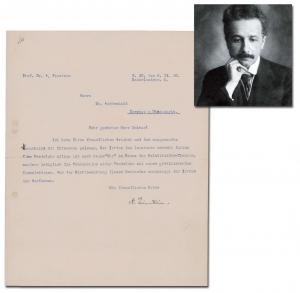Russia’s noncompliance with the New START Treaty, and its claimed suspension of the treaty, are unfortunate and irresponsible steps. Mutual compliance with New START strengthens the security of the United States, our allies and partners, Russia, and the world. Russia’s claimed suspension of the New START Treaty is legally invalid. As a result, Russia remains bound by its obligations under the treaty. The United States remains ready to work constructively with Russia to fully implement the treaty. Below are the facts about the current state of the treaty:
Fact: Russia can easily remedy its current and clear noncompliance with the New START Treaty
- Russia’s noncompliance is clear:
- Russia is refusing to allow inspections. The treaty requires each Party to accept 18 inspections per year. Inspections strengthen nuclear stability by giving both sides confidence that the treaty’s limits on nuclear weapons are being respected.
- Russia refuses to meet in the treaty’s implementation body, the Bilateral Consultative Commission (BCC), despite repeated U.S. requests. The treaty requires both sides meet in the BCC. This also is an important element of nuclear stability. It provides a channel for experts to engage in constructive discussion and resolve technical questions of treaty implementation in a mutually beneficial way.
- Russia has stopped providing its treaty-mandated notifications. The treaty requires each side to provide data and notifications, including on the status and movement of its accountable nuclear forces. Mutual compliance with these obligations is an important element of nuclear stability. It provides significant transparency and predictability regarding strategic nuclear forces.
- Russia’s noncompliance threatens the viability of the treaty. While the United States assessed that Russia did not engage in significant activity above the treaty limits in 2022, Russia’s failure to allow inspections and provide notifications degrades U.S. ability to assess Russian nuclear deployments.
- Russia can easily remedy its noncompliance by resuming activities it conducted for years under the treaty: host inspections, meet in the BCC, and provide notifications and data.
Fact: There is nothing preventing Russia from conducting inspections on U.S. territory
- Since the easing of COVID-related restrictions, the United States has made it crystal clear to Russia that we are prepared to host Russian inspectors.
- Russia has everything it needs to conduct inspections on U.S. territory, and the United States would welcome a Russian inspection team, per the terms of the treaty.
- Russian inspectors have the necessary visas, Russian treaty-designated airplanes have viable air routes to transport inspectors to the United States, inspectors can also use commercial air travel to reach U.S. territory, and there are no sanctions that prevent Russia from fully exercising its inspection rights.
Fact: The United States remains in full compliance with the New START Treaty
- Russia has claimed that U.S. conversion procedures for its submarine-launched ballistic missile (SLBM) launchers and B-52H heavy bombers are not consistent with U.S. obligations under the New START Treaty.
- These claims are false.
- The U.S. conversion procedures for SLBM launchers and heavy bombers render the converted items incapable of employing nuclear weapons.
- The United States has declared and demonstrated the procedures and exhibited the converted items to Russia, just as the treaty requires.
- Russia has the treaty right to inspect converted items to confirm the results of the conversions as the United States exhibited them to Russia. It is up to Russia to do so.
- As Russia acknowledged publicly, the United States has gone beyond the requirements of the treaty to address Russian concerns with SLBM launcher conversions. After careful and constructive work, both sides reached a mutual understanding on additional voluntary measures to address those concerns. The United States welcomes Russian inspections during which Russia can take advantage of these measures.
- Russia’s accusations of U.S. noncompliance are baseless attempts to distract from Russia’s own actions, and do not provide Russia a valid legal basis to suspend the treaty.
Fact: The United States remains ready to meet and discuss U.S. and Russian compliance concerns and all other issues related to implementation of the treaty.
- The United States was ready to work constructively with Russia at the BCC session that was scheduled for November 2022, which Russia abruptly canceled. Contrary to Russian claims, all topics Russia identified for discussion were on the agenda.
- We remain ready for constructive engagement today. Such engagement is an important element of nuclear stability.
Fact: Russia’s war in Ukraine does not provide a valid basis for Russian noncompliance with the New START Treaty
- The strong U.S. and international response to Russia’s unprovoked invasion of Ukraine does not absolve Russia of responsibility to fulfill its legal obligations under New START.
- Russia’s noncompliance and purported suspension of the New START Treaty will not stop the United States from continuing to fully support Ukraine. That reality is irrelevant to the utility of the treaty and Russia’s ability to continue participation in it.
- New START inspection activities do not threaten Russian security. The treaty provides both sides with the means to ensure the safety and security of inspected facilities.
- Nuclear stability is especially important in time of crisis, and the United States will continue working to maintain it.
For further information, please contact AVC Press at [email protected] or visit the Bureau of Arms Control, Verification and Compliance.
Official news published at https://www.state.gov/russian-noncompliance-with-and-invalid-suspension-of-the-new-start-treaty/













